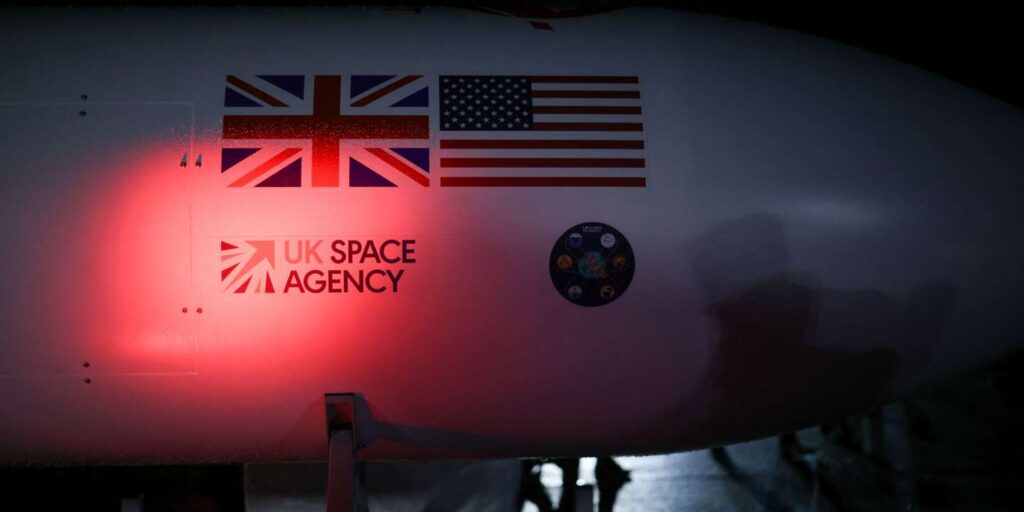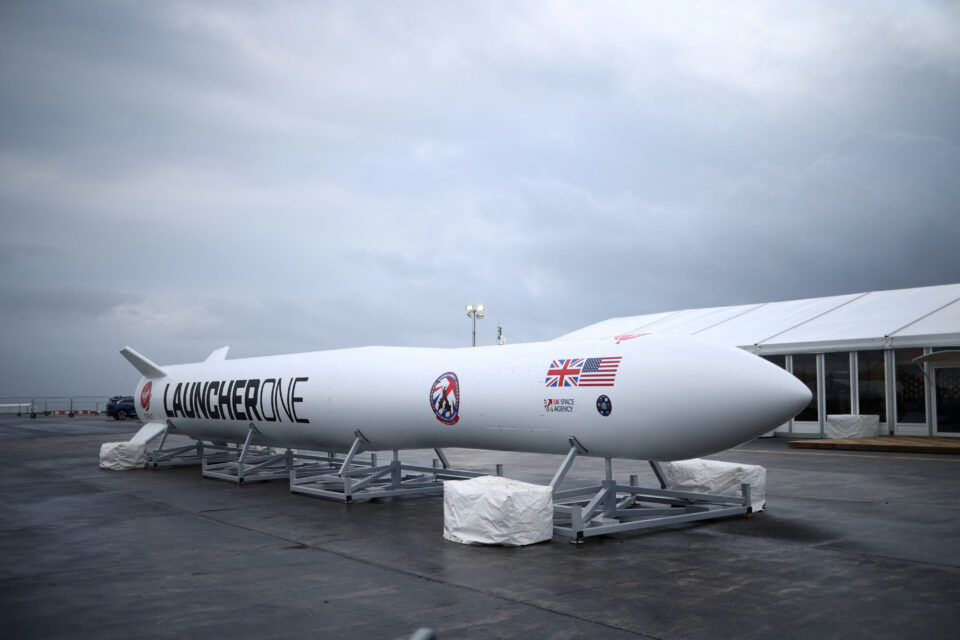On Tuesday, an effort to send the first rocket into orbit from UK land failed after scientists noted a “anomaly” as it got close to its target. The 70-foot (21-meter) rocket was launched at 22:02 GMT from a spaceport in Cornwall, southwest England, by a Virgin Orbit Boeing 747.
At around 2315 GMT, the rocket then separated from the plane and was detonated as intended at a height of 35,000 feet over the Atlantic Ocean to the south of Ireland.
However, Virgin Orbit stated in a series of tweets as the rocket was about to launch and release its nine satellites: “We appear to have an anomaly that has prevented us from reaching orbit. The data is being evaluated.
Also Read: Goldman Sachs likely to lay 3,200 employees post cost review
“We’re taking down our prior tweet about reaching orbit until we learn more. If we can, we’ll provide further information.” The aircraft made its scheduled return to Cornwall Airport Newquay’s Spaceport Cornwall, a group that includes Virgin Orbit and the UK Space Agency.
It was the first launch from British soil. Previously, satellites made in the UK had to be launched from foreign spaceports. The UK would have been one of only nine nations able to send satellites into Earth’s orbit had the mission been successful.
Before the launch, Spaceport Cornwall director Melissa Thorpe told BBC television, “Joining that incredibly exclusive club of launch nations is so essential because it offers us our own access to space… that we’ve never had here in the UK.” The launch, called “Start Me Up” after the Rolling Stones song, attracted hundreds of spectators.

The satellites were expected to perform a range of civic and defense tasks, such as space weather observation and marine monitoring to help nations find people smugglers. The commercialization of space has led to an increase in the number of space bases in Europe in recent years.
National space agencies employed satellites largely for institutional missions for a long time, but today the majority of Europe’s spaceport projects are driven by the private sector.
With the advent of small start-ups, advances in technology that have made satellites and rockets smaller, as well as the fast expanding variety of satellite-related applications, the industry has boomed.
Also Read: Jasprit Bumrah dropped ahead of India-Sri Lanka ODI series
Between 2022 and 2031, approximately 18,500 tiny satellites — those weighing less than 500 kilogrammes (1,100 pounds) — are anticipated to be launched, up from 4,600 over the previous decade.

